There are definitely very few people who can say that they love (or at least like) spiders!
These eight-legged creatures are mostly associated with something unpleasant, ugly and even dangerous since, as you probably know, there are many species of them that are poisonous.
This is why, when we find spiders in our houses, we don’t know what to do. Why did they come?
What made spiders appear inside your house? What exactly did they find so attractive?
And what is even more important – how can you get rid of them quickly?
Too many questions that need to be answered, so we decided to help you out a bit. In this article, you will find a lot of useful information.
In particular, we will tell you what causes spiders to get in the house, and how they make their way to your dwelling space.
In addition, you will learn what types of spiders usually live in our houses, and what can be done in order to keep these creatures as far from our homes as possible.
How Do Spiders Get Into Your House?
Of course, the second you spot a spider in your house, you start asking yourself how it could get there.
And if you notice many of them coming to pay you a visit, then you will definitely want to find out how these eight-legged creatures could find their way to your home!
In general, spiders have two major methods they typically use for entering human homes.
First method
It is extremely obvious they just make their way through your windows, doors, cracks in the walls and floors, gaps, holes around the piping, vents, and other similar places.
Any opening that leads to your home is a potential entry point for a spider in fact. The key to prevention of their invasion is to seal up any of these openings that you can find.
Doors and windows should be closed properly, creating tight seals. Also, we would recommend you replace any worn weather stripping and install door sweeps. Windows should also have properly fitted screens in place.
In addition, in order to stop spiders from entering your home, you will have to seal cracks in the foundation and any gaps or holes you might find there or around.
Some common areas that you should check include those around the places where the pipes enter the building, as well as all the air vents.
You can also put a mesh screen on air vents and use caulk or steel wool in cracks and gaps.
This might not be very helpful against spiders, but for sure, it will help prevent other pests and rodents from entering your home as well.
Second method
These creatures typically make use of in order to get inside of our homes can be called a form of hitchhiking to a certain point.
It simply means that they would stow away in your belongings. They can be found inside the boxes during a move, on toys coming in from the yard or any number of items that are carried inside from another place.
Plants, firewood, camping equipment – these are all the things that should be thoroughly inspected for any traces of spiders before you bring them into your home!
We don’t know whether it is good or bad, but there is not much else that can be done about this issue except for staying vigilant as much as possible.
We would suggest you get in the habit of inspecting all the items for spiders before you bring those things inside.
Also, you need to make sure that you seal up all the possible entry points that may lead spiders to your home.
If you do all this, you should see a significant reduction in these creatures in your house pretty soon.
In addition, as a preventative measure, vacuum regularly and do your best to reduce the overall number of pests that might get into your house.
This can be done by eliminating outdoor lighting close to doors and windows for example.
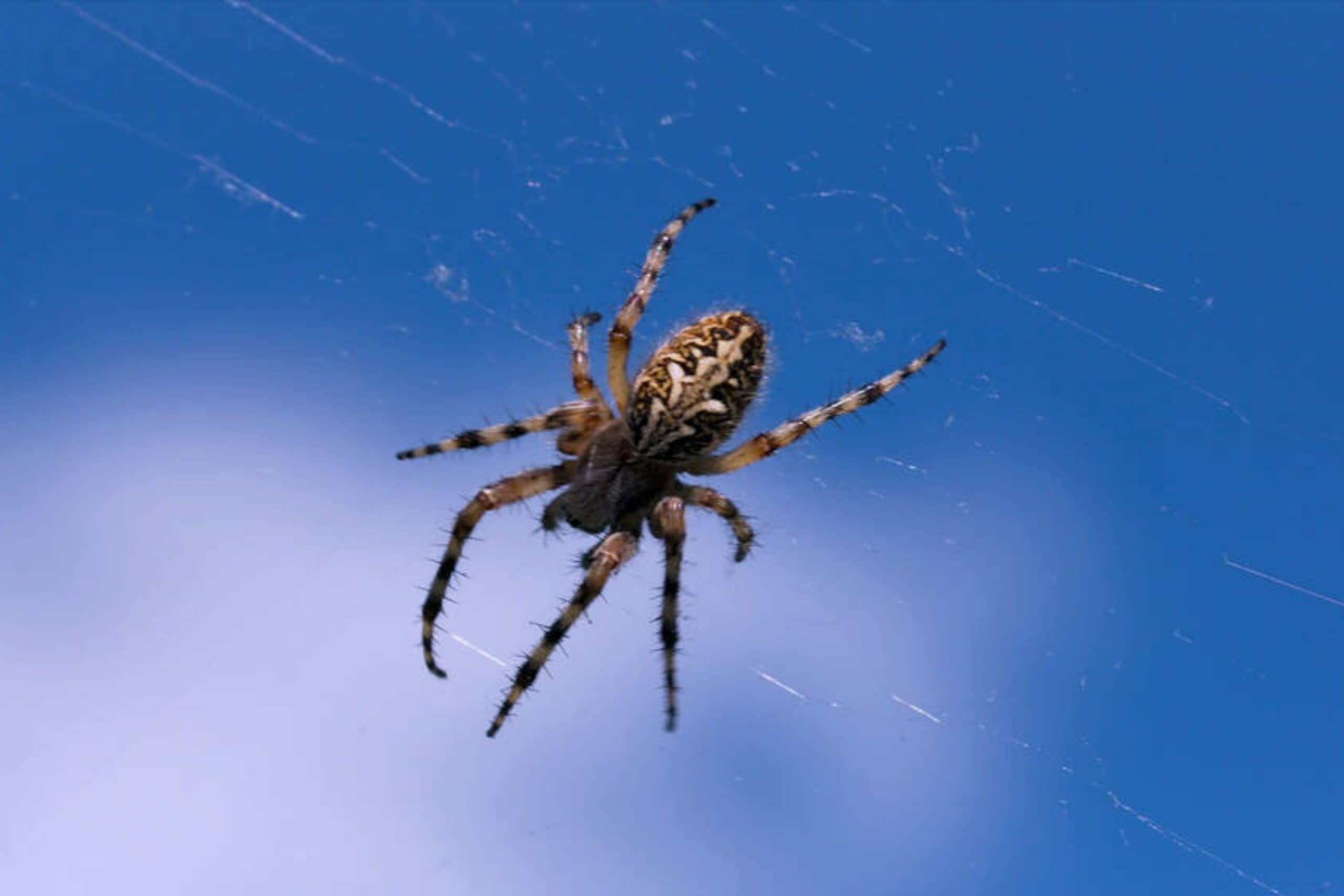
What Types Of Spiders Can Get Into My House?
When you spot a spider in your house, the biggest fear of anyone is that it might be poisonous.
And since we usually are not aware of the types of spiders that live in our area, finding this creature roaming around your home can easily make you shocked and stressed!
This is why we suggest you learn a bit more about the typical types of spiders that can be found in the majority of households.
Common house spider
This spider can freak you out easily because it looks scarier than other types being much bigger and hairier!
Female spiders of this kind are larger than males and you can usually find them building their webs in different corners of your house that nobody will disturb.
As for the smaller male ones, they can be spotted searching the property for a partner.
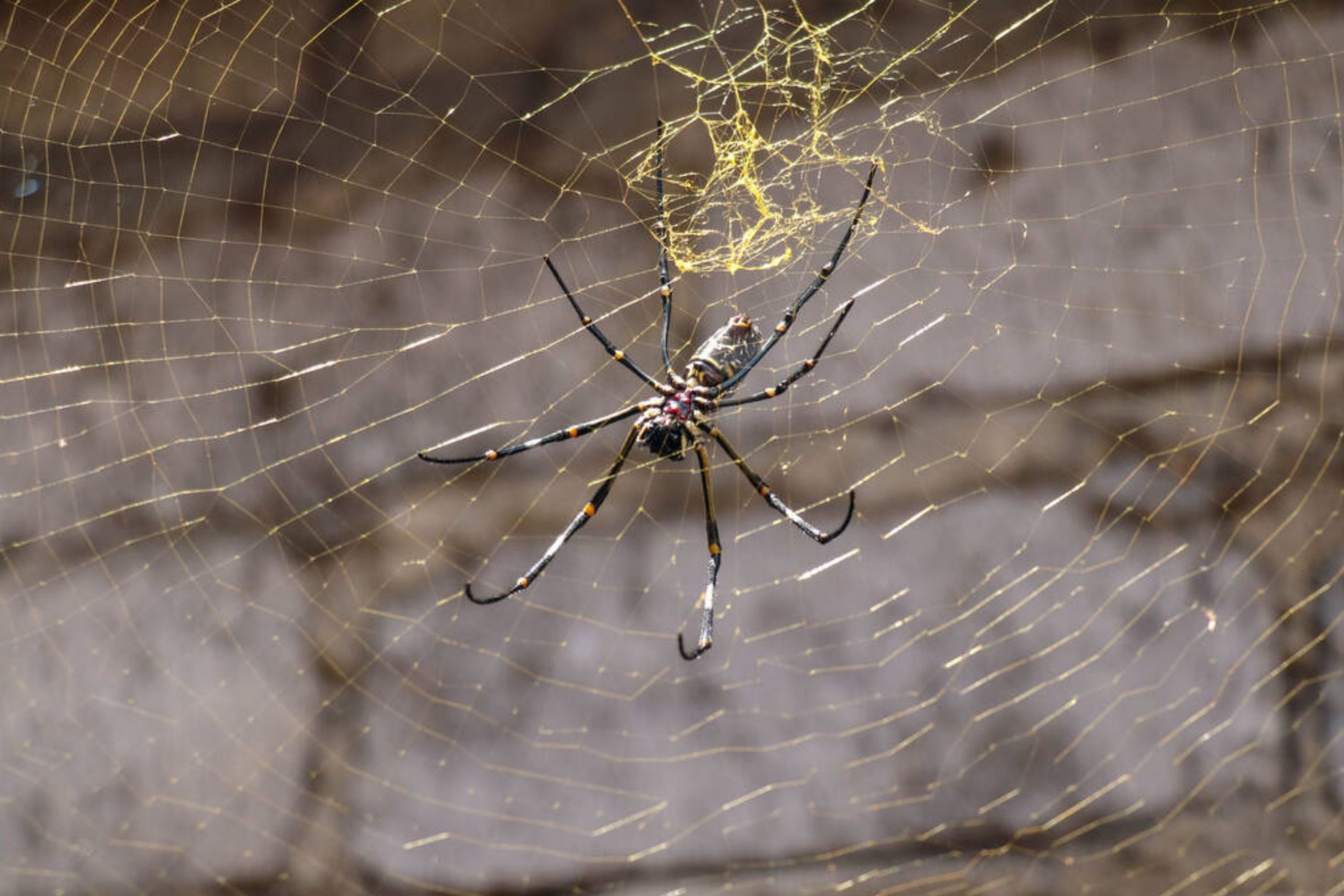
Daddy long-legs
As you can guess from the name of this kind, this spider has very long legs, which help the insects make vibrating sounds, in order to catch their prey fairly easily.
The webs that they create are very fragile and move to the slightest touch.
False widow
In fact, there are three false widow spider kinds that can be found in your home: the Common false widow spider, the Cupboard spider, and the Noble false widow spider.
But don’t worry, you will easily recognize them: all of these species have round, shiny and smooth bodies and rather short legs.
So since you are now aware of the most common types of spiders that may come into your home, and you also figured out how they can get there, we suggest you learn more about the factors that tend to attract these creatures into our homes.
Related: What Eats Ticks | Detailed Guideline
What Are Spiders Attracted To In Your Home?
We bet that most of you have no idea of what attracts spiders making them get into our houses.
However, knowing this will help you to figure out how you can stop them from visiting.
So what do spiders like and what draws them to your homes? Here are the main reasons for spiders to prefer your property and enter it very often:
Extreme weather conditions
House spiders are tiny and fragile creatures and so even the smallest change in the weather can affect them not in a good way.
Basically, if it gets a bit too warm, too cold or excessively wet outside, you should expect spiders to come looking for shelter in your home.
Mating season
If you ever noticed how significantly the number of spiders increased in just a few weeks in your home, the reason for this could be the mating season.
When that egg-making time of the year comes, spiders start looking for the best and the safest living place and breeding conditions and of course, for a partner, as well.
Human homes can provide both, as you have already guessed.
Nourishment
If you happen to have the right food and water source in your house for the insect, a spider invasion is going to happen anyway.
So, if you see various insects lingering on your property, this is another good reason for you to take care of them right then!
Also, we would not recommend you leave your fruit unprotected on the kitchen table or counter since some species of spiders feed on fruit as well.
Egg-laying preferences
You can actually carry spiders into the house by bringing in second-hand items.
The insect likes to lay their eggs in hidden places to protect them.
You could never know when there is an old, forgotten spider egg sac attached somewhere onto your new vintage sofa, waiting to hatch.
Easy access
Anything from a small crack in the wall to an opened window is an invitation for a spider to visit your house and stay there longer.
There are even some species that get so clever that they make use of holes made by other types of vermin and crawl in!
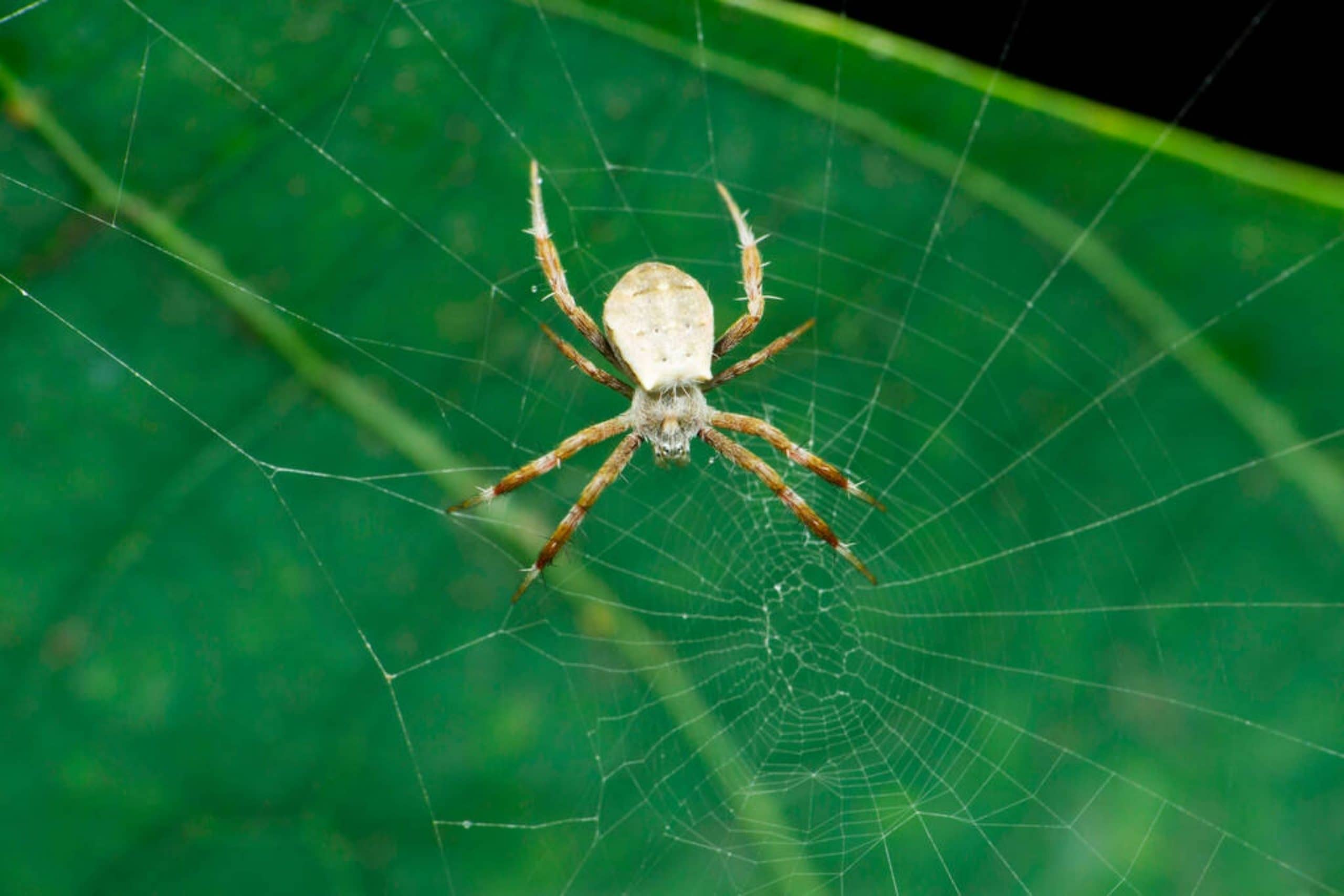
Related: What Eats Bed Bugs? 9 Natural Predators
How to Find Spiders In Your Room?
If you know that your area is full of spiders, and/or if you have already noticed them in your house, you might want to know how you could spot these creatures in your home once they get there.
You might think that you just need to find a spider web, but it is not like that all the time.
To be able to find a spider indoors, you need to keep in mind that their preference for a hideout or web-building spot depends on the type of insect pretty much.
For instance, there are species that like moist areas like crawl spaces, basements, and bathrooms.
Other spiders prefer dark and quiet places such as attics, air vents, and room corners.
In comparison, common house spiders don’t like to show themselves, living close to their water and food sources.
To sum it all up, most spider species prefer living in cluttered places, so don’t expect to see them in broad daylight on your wall or a table!
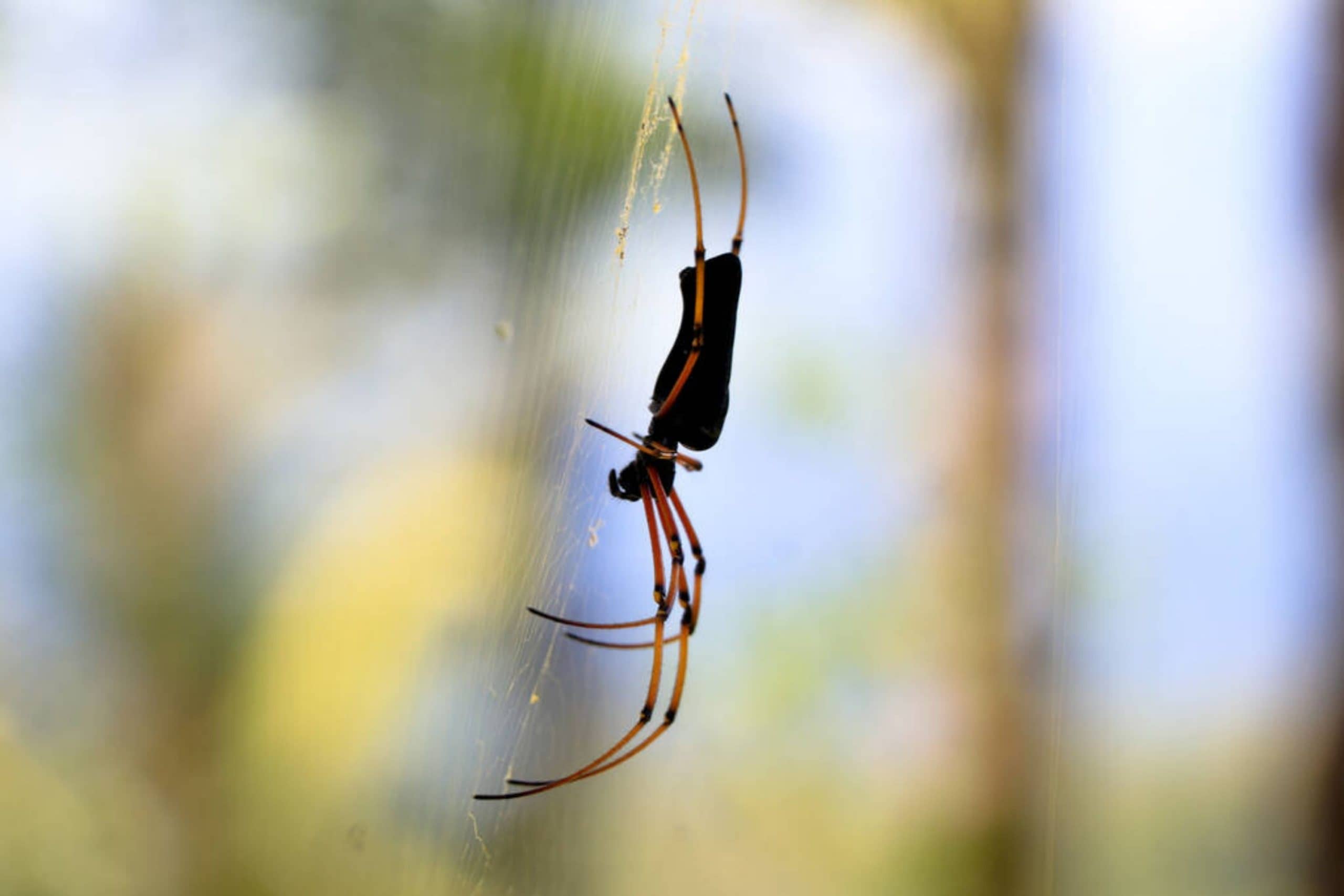
How to Get Rid Of Spiders In Your Home
The good news for you is that keeping spiders away from your house is not a hard thing in comparison to dealing with some other insects and pests like ticks, etc.
There are plenty of easy methods that can be used and become handy, and they are also affordable and cheap!
Just check out a few effective methods:
Essential oils
Spiders don’t like the smell of some essential oils, with their biggest enemy being peppermint.
So to cast these unwelcome guests away, all you need to do is to get a spray bottle and fill it up with cold water.
Then add around twenty drops of peppermint oil ( you can buy it from any pharmacy).
Shake the pulverizer and spray all potential spider areas in your home paying special attention to the corners of the rooms, vents, cracks in the walls and floors, closets, etc.
This will help you eliminate all chances of having a spider move in.
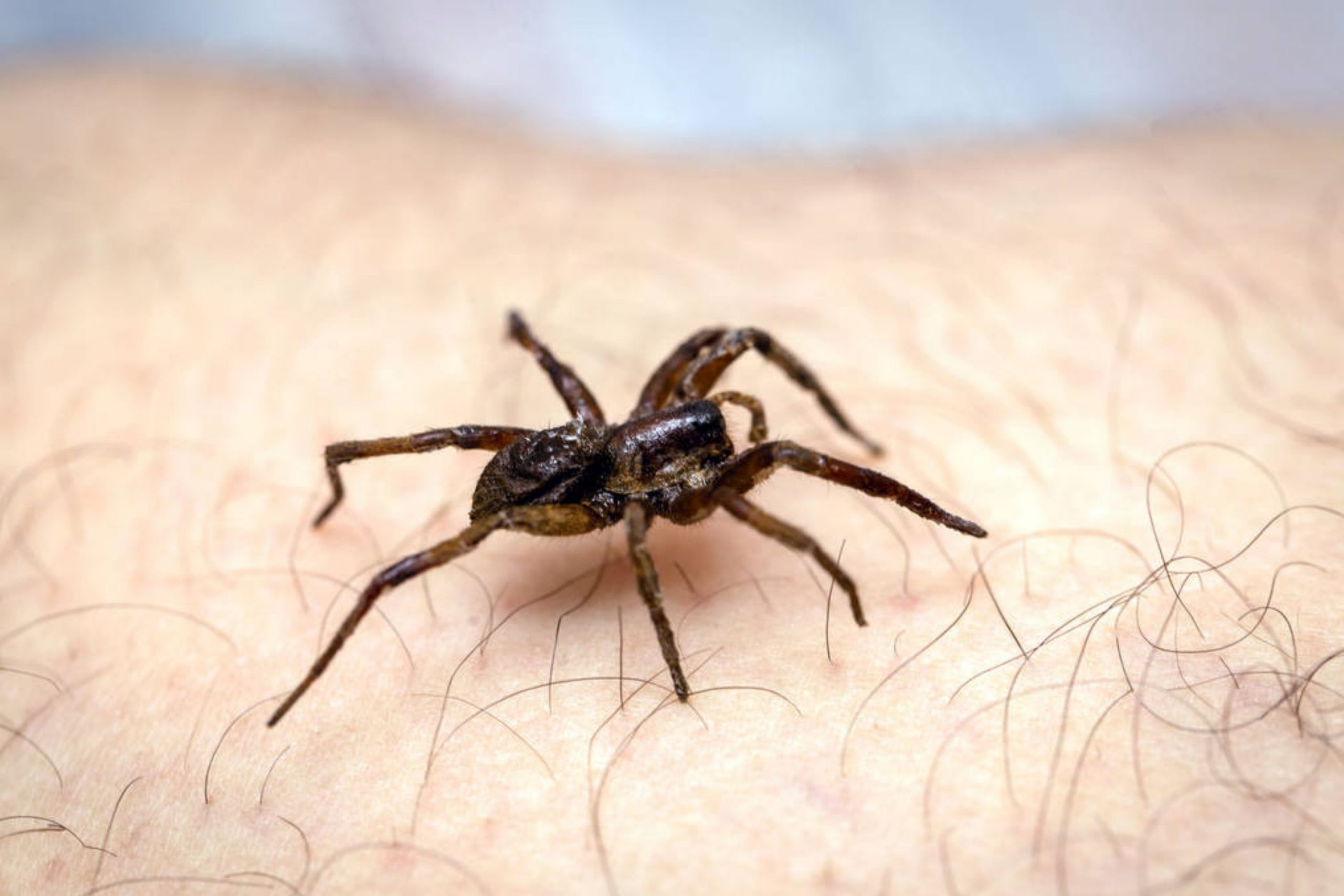
DIY spider repellent spray
Instead of wasting money on chemical, smelly and most often rather expensive repellents from the store, you can easily create your own anti-spider repellent with the help of two kitchen items that you definitely have at home – vinegar and black pepper.
Just like in the first case, get a spray bottle and fill it up with equal amounts of water and vinegar.
Then add a bit of black pepper and shake the mixture.
Spray any entry points or areas that can be invaded by spiders.
If you don’t mind your house smelling like a bowl of salad for a couple of hours, this method is exactly what you need.
Sticky traps
This method is good against the spiders that already live in your house.
You can place the traps anywhere around your home safely because the solution used for these traps is non-toxic.
You can find this sort of pest trap in any hardware store and it’s fairly cheap.
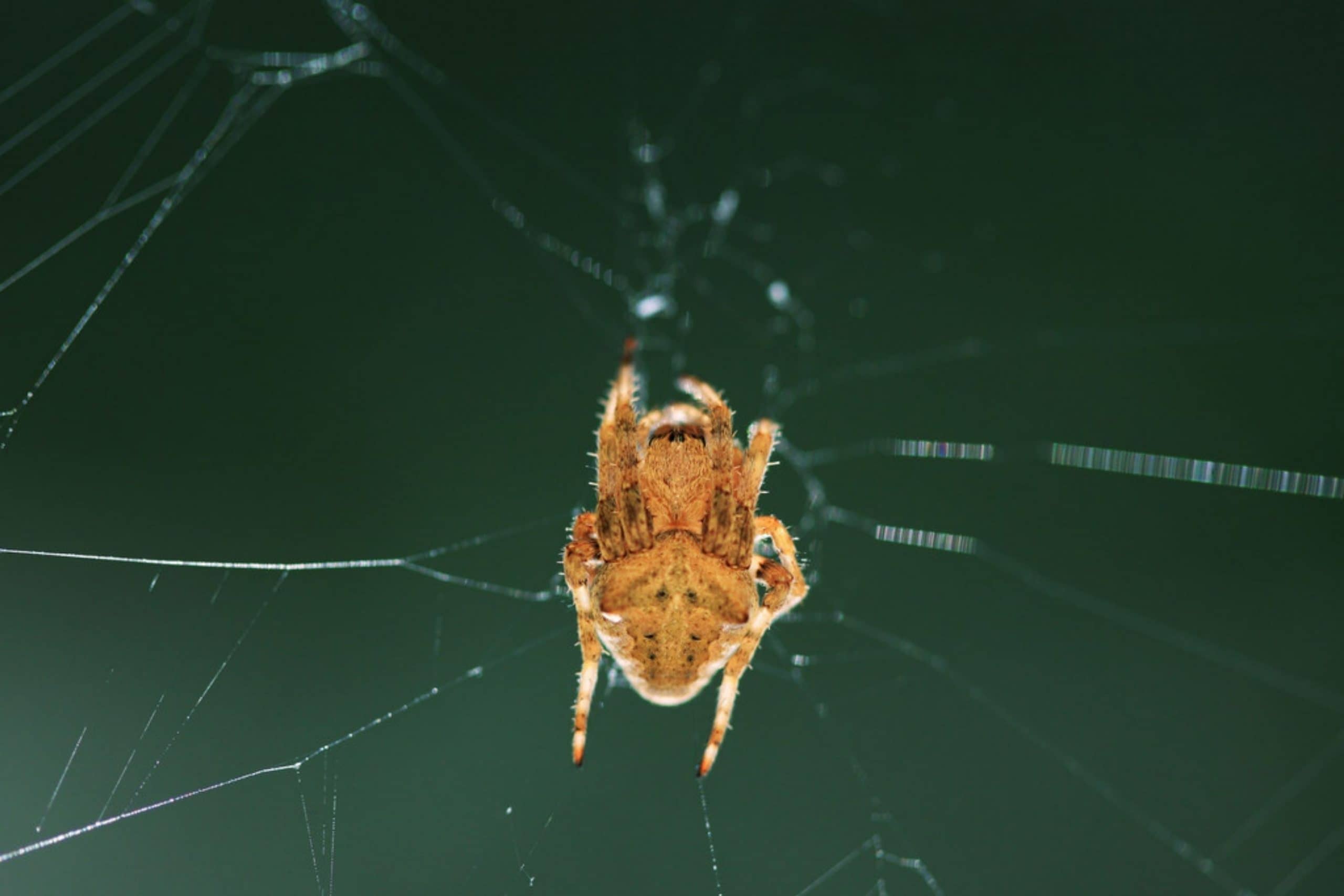
Professional spider control
Finally, if you have tried all the methods that we described above, but nothing helped, it is the right time to hire an expert exterminator.
This is the most effective treatment against the six-legged guests.
So, ladies and gentlemen, now you are informed about all the nuances that come with having spiders in your house.
We told you what makes these creatures come to your homes, how you can spot them and where you should look for them indoors, and also, we told you what cheap and effective methods can be used in order to free your home from these guests.
Like this, you can easily keep spiders away from your living area and make sure that these creatures avoid paying you visits.
[wp-faq-schema title=”Frequently Asked Questions”]
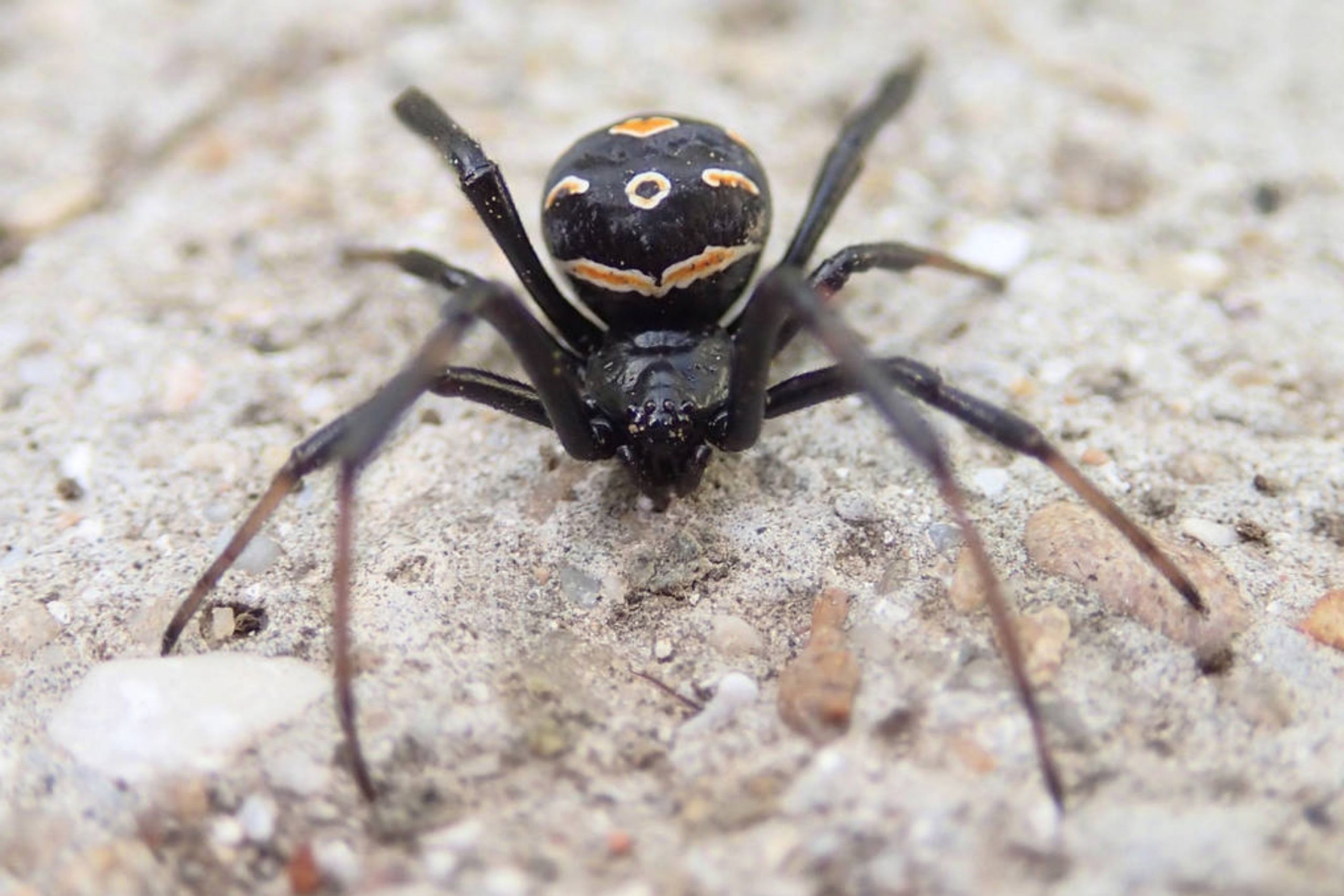
Where do house spiders come from? I still find them in our house even after we cleaned up all the yard and the garden. But they keep coming!
They typically come from anywhere, you could easily bring them with you after a walk in the park or in the forest, for example. By the way, if you have bought any second-hand items recently, spiders could arrive with those too.
Can a spider in my house be dangerous? I see one or two from time to time, but since I’m not familiar with their species, I’m a bit worried. Thanks!
Hi! Usually, home spiders are harmless. But of course, if you live in tropics, then you should be worried!
My cat is always chasing home spiders! And I’m afraid he can one day catch something that’s dangerous. The problem is also bothering me because he attempts to eat them. What shall I do in this case?
Well, I guess you should somehow protect your house from these visitors. Any spider-repelling methods and products will be handy. And check what species of spiders live in your area. Like that you will be aware which of them might be harmful.
Do I need to kill a spider if I find it indoors? Those that we find sometimes are most likely harmless so I’d rather release them.
I guess you’d better release them in fact. Anyway, killing spiders won’t stop them from coming into your home! But anyway, be careful when catching it!